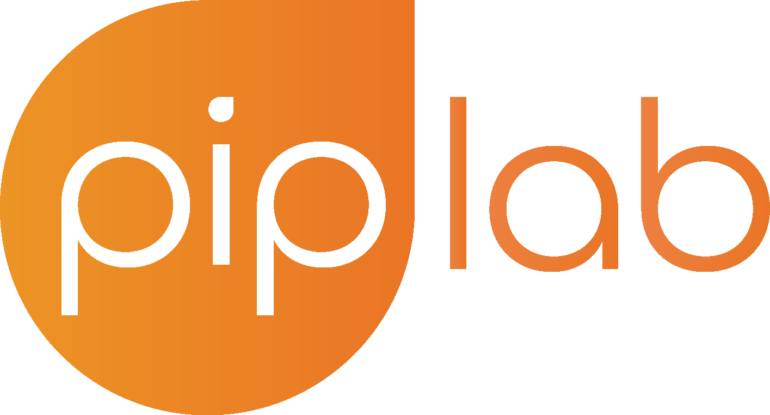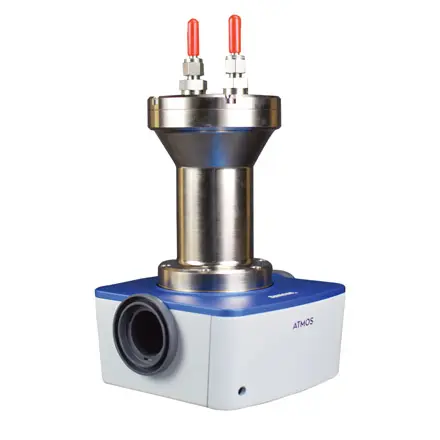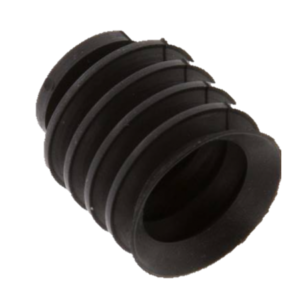- Powered by Goffin Molecular technologies
- Korte Levertijd
- Laat onderzoek altijd doorgaan

Direct leverbaar
De Pearl™ is uitgerust met een Oyster Cell met ZnSe of CaF2 vensters die in enkele seconden verwisseld kunnen worden. Deze Oyster Cellen zijn verkrijgbaar in zes padlengtes, 25, 50, 100, 200, 500 en 1.000 μm. De padlengtes kunnen gewijzigd worden door eenvoudigweg het onderste venster te verwisselen voor de gewenste padlengte.
De Pearl™ is ontworpen om een nauwkeurigere padlengte te bieden dan kan worden bereikt bij het uit elkaar halen en weer in elkaar zetten van een traditioneel accessoire voor vloeistoftransmissie, met padlengten die herhaalbaar zijn tot aanzienlijk minder dan 1 μm dankzij de innovatieve Oyster Cell.
Het ondervenster van de Oyster Cells kan parallel of wigvormig (ten opzichte van het bovenvenster) geleverd worden. Parallelle cellen bieden de mogelijkheid om de exacte padlengte van de cel te berekenen met behulp van de interferentiefringmethode, hoewel ze een sinusoïdaal golfringpatroon in de spectra kunnen veroorzaken als de brekingsindex van het materiaal tussen de vensters verschilt tussen monster- en achtergrondspectra. Parallelle cellen werken het best bij het analyseren van een analyt die is opgelost in een oplosmiddel waarbij een achtergrondspectrum kan worden verkregen met het zuivere oplosmiddel. Wigvormige cellen verminderen het randpatroon aanzienlijk, waardoor spectra van betere kwaliteit kunnen worden verkregen wanneer de brekingsindex van de achtergrond en het monster verschillend moeten zijn, zoals bij de analyse van zuivere monsters waarvoor een lege celachtergrond nodig is. Voor wigvormige cellen bieden we een kalibratiehulpmiddel voor de padlengte van heptaan om een benadering van de padlengte van je cellen te verkrijgen (link: https://www.specac.com/en/resources/pathlength-calibration). De intensiteit van het interferentiefringpatroon is ook afhankelijk van de brekingsindex, waarbij materialen met een hogere brekingsindex resulteren in een meer uitgesproken patroon in jouw gegevens. CaF2 wedged cells bieden de beste spectrale kwaliteit (met betrekking tot fringing), hoewel het spectrale venster kleiner is dan ZnSe. Vensterspecificaties en chemische compatibiliteit
| Materiaal | Bereik (cm-1) | Brekingsindex |
| ZnSe | 20,000 to 500 | 2.41 |
| CaF2 | 50,000-1,180 | 1.31 |
ZnSe is onverenigbaar met zuren en sterke basen (aanbevolen bereik pH 5,0-9,0). CaF2 is over het algemeen bestand tegen zuren, basen en water, hoewel het licht oplosbaar is in salpeterzuur en met zwavelzuur reageert tot fluorwaterstofzuur. De cel zelf is gemaakt van corrosiebestendig roestvrij staal, maar dit kan beschadigd raken door blootstelling aan sterke zuren en basen of langdurige blootstelling aan zwakke zuren en basen. Controleer voor gebruik altijd de compatibiliteit van je monster en de celmaterialen.
Voordelen van de Pearl ten opzichte van andere cellen voor vloeistoftransmissie
De eenvoud van de Oyster Cell maakt snelle en eenvoudige reiniging mogelijk, waardoor de doorvoer van monsters sterk toeneemt. Bij een traditionele cel verandert de padlengte elke keer als deze uit elkaar gehaald en weer in elkaar gezet wordt. Dit wordt geëlimineerd door het innovatieve ontwerp van de Oyster Cell. Onjuiste assemblage, of overdruk veroorzaakt door het injecteren van een monster in de cel kan een traditionele cel lek maken. Dit wordt geëlimineerd dankzij het horizontale ontwerp van het Pearl en Oyster Cell systeem. Voor hoge doorvoeranalyse van vloeibare monsters is er gewoon geen betere keuze. Voor zeer viskeuze monsters die in een gedemonteerde cel geladen moeten worden, is de reproduceerbaarheid van de padlengte vrijwel onmogelijk met een traditionele cel. Met de Oyster Cell behoort dit probleem tot het verleden; de padlengten zijn reproduceerbaar elke keer dat de Oyster Cell wordt gemonteerd! Voor vluchtige monsters heeft de Oyster ook een injectiepoort voor maximale veelzijdigheid.
| Methode | Nummer | |
| Bepaling van het gehalte aan vetzuurmethylester (FAME) in middendestillaten. Infraroodspectrometriemethode | EN 14078 | |
| Standaardpraktijk voor conditiebewaking van in gebruik zijnde olie | ASTM D7418 | |
| Fosfaatslijtagewerende additieven in in gebruik zijnde smeermiddelen op basis van aardolie en koolwaterstoffen door trendanalyse | ASTM D7412 | |
| Controle van oxidatie in in gebruik zijnde smeermiddelen op basis van aardolie en koolwaterstoffen | ASTM D7414 | |
| Sulfaatbijproducten in in gebruik zijnde smeermiddelen op basis van aardolie en koolwaterstoffen | ASTM D7415 | |
| Nitratie bij in gebruik zijnde smeermiddelen op basis van aardolie en koolwaterstoffen | ASTM D7624 | |
| Standard Practice for Condition Monitoring of In-Service Lubricants by Trend Analysis Using Fourier Transform Infrared (FT-IR) Spectrometry | ASTM E2412 |
Andere experts gebruiken onderstaande producten ook
Ontbreekt er een onderdeel waar je naar opzoek bent? Laat ons weten klik hier
Ontbreekt er een onderdeel waar je naar opzoek bent? Laat ons weten klik hier


Andere experts bekeken ook
Meld je aan voor de nieuwsbrief